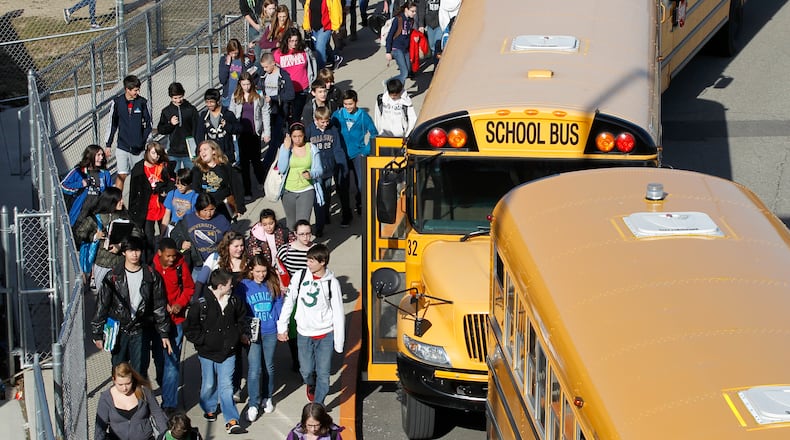Substitute levies do not increase tax rates for existing taxpayers, but they can bring in higher revenues for the schools in future years if there is new construction, as the same tax rate is then applied to those new residential or commercial properties.
That’s opposed to an emergency levy, where the total dollar amount the levy can bring in remains the same year after year, but the amount of property tax people are charged depends on changes in the value of homes and how many people are paying into the levy.
Paul Otten, Beavercreek’s superintendent, noted the levy request on the ballot now is a renewal of a previously approved levy that would expire Dec. 31, 2023.
“If this levy discontinues and should expire, the district will lose $11.4 million in revenue annually and will be required to adjust the budget of the district by the same amount, which would modify current programs and services that are in place for our students and families,” Otten said.
Otten said Beavercreek usually tries to put a levy on the ballot for renewal well before its expiration. This is typical for school districts to allow them multiple chances to put levies to a public vote.
Beavercreek Schools are in solid financial shape, according to the most recent five-year forecast the district filed with the state. Over the past three years, the district was more than $9 million in the black. Last summer, they had about 32% of a year’s spending in the bank, which is just slightly below the local average. Beavercreek projected to finish this year and next year in the black.
Beavercreek schools spent $13,009 per pupil in 2021-22 according to the Ohio Department of Education. About 65% of school districts statewide spent more per student than Beavercreek.
The May 2 school levy does not seek a rate increase. Beavercreek voters last approved a “new money” levy for day-to-day school operations in 2019, making them one of the more recent districts to do so locally.
On the 2021-22 state report card, Beavercreek ranked in the top 15% of Ohio school districts for performance index on state tests, and for growth index, which aims to show students’ year-over-year progress.
Citizens for Beavercreek City Schools, which is represented on Facebook as Creek Pride Community Pride, has been posting information about the school levy.
Diana Unger, coordinator for the levy campaign and a community member, said in a recent video that the levy is not new and would not increase taxes.
“This is to maintain the funding that voters deemed necessary in 2019,” she said. “So we really do need your vote.”
The Dayton Daily News sought everyday residents’ input on the pros and cons of the school tax levy, but the most common response was people saying they hadn’t heard about the levy so far.
About the Author

